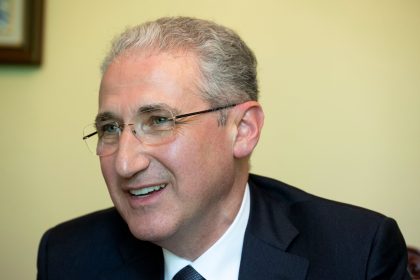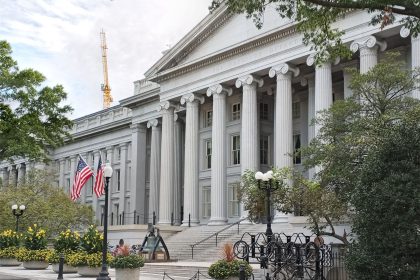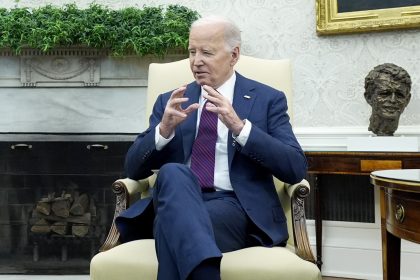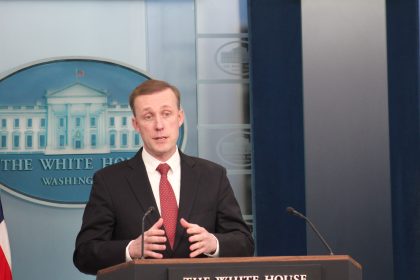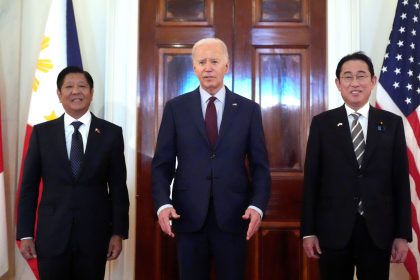Syrian Quake Relief Is ‘Textbook Definition of a Complex Crisis’
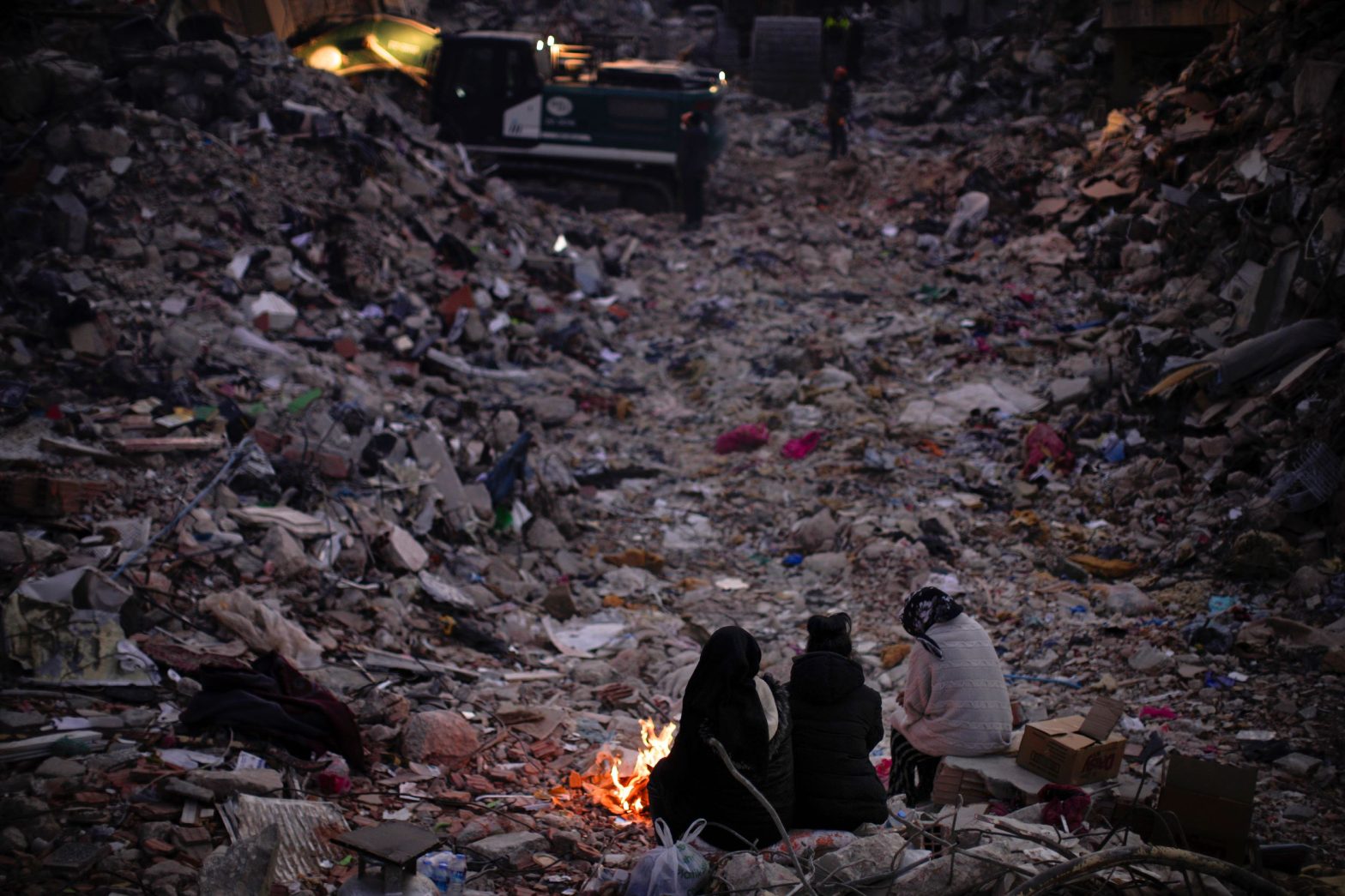
WASHINGTON — A month after Syria experienced the first of two earthquakes in the early hours of Feb. 6, and as it continues to experience aftershocks that further compound the country’s devastation after more than a decade of civil war, experts joined the D.C.-based Brookings Institution to examine the role of sanctions and aid policies on humanitarian efforts for the Syrian population.
In short, analysts pushed for an earthquake relief strategy that secures direct delivery of humanitarian aid to people in need, rather than sending it through government channels. A push for increased border crossings was also strongly advised.
Analysts doubted that the earthquakes would shift any real foreign policy toward Syria. They warned that the rebel-held northwest Syrian government under President Bashar Assad is exploiting the earthquake to relieve itself of accountability for over a decade of death and infrastructure devastation, and instead place blame for everything on the natural disaster, all while funneling in weapons under the guise of humanitarian aid and stealing money meant to support a population dealing with catastrophe.
“This is the textbook definition of a complex crisis,” Amany Qaddour, executive director at Syria Relief and Development, said.
While tens of thousands of Syrians were “trapped, if not abandoned, without international assistance coming in for several days,” following one of the strongest earthquakes to hit the region in over a century, she said the crisis was compounded by the vulnerability of a population already in an infrastructure and housing crisis.
“We were [also] dealing with an already stretched health care system before this,” Qaddour said, lamenting that increased crossing points were not opened sooner for aid to reach those who desperately need it and that the Assad regime couldn’t “prioritize humanitarian aid and not weaponize it.”
Many believe the earthquake is being used as an opportunity for Assad to normalize his regime in the international community. Indeed, some Arab states, including Jordan, the UAE, Bahrain and Algeria had already reestablished relations with the Syrian regime before the quake.
Assad took advantage of the disaster to demand that the United States and European Union lift sanctions they had previously imposed on Syria. Claiming these sanctions hampered search and rescue operations, the regime also demanded that all aid be sent through the government, and not across Syria’s borders with Turkey, a country also strongly affected by the earthquake but which is not in favor of normalizing relations.
Sanctions in Syria imposed after the uprising in 2011 were aimed at behavioral change, to push the Assad regime to negotiate a political settlement, according to Karam Shaar, a scholar at the Middle East Institute.
“People think that sanctions have a strong negative impact on the humanitarian response. I think … sanctions have caused limited harm; however, most of the harm has been caused by the Assad regime,” Shaar said, noting that the rebels have been known to steal aid and siphon it instead toward its terrorist activities.
“Sanctions do have a direct impact on reconstruction,” he agreed. “So should they be lifted? The answer depends.”
Although sanctions for humanitarian assistance were already lifted, following the quake the United States issued General License 23, which “authorizes for 180 days all transactions related to earthquake relief that would be otherwise prohibited by the Syrian Sanctions Regulations.”
But after a dozen years of conflict in Syria, fuel shortages, damaged roads and other logistical issues resulting from a collapsed economy — coupled with freezing winter weather — aid to northwest Syria still experienced an initial delay. And having but a sole operational border crossing between Turkey and Syria kept crucial aid from reaching those affected.
Two additional border crossings were finally granted by Assad a week after the earthquake hit, but precious time was lost.
U.S.-supported partners and medics have rescued and treated survivors in Idlib, Aleppo and other affected areas. U.S. military helicopters, conducting airlift operations from Incirlik Air Base in Turkey, transported rescue personnel. And the U.S. Navy repositioned naval vessels to the Eastern Mediterranean Sea to provide support for needs that were identified in close coordination with the Turkish government as a North Atlantic Treaty Organization ally.
But even with renewed solidarity in the aftermath of the quake, experts admit it is very unlikely that earthquake diplomacy will succeed in countering the destructive military and political influence in Syria.
“Post-earthquake diplomacy might be overstated at the moment,” Steven Heydemann, senior fellow in Foreign Policy at the Center for Middle East Policy, warned. “We have to be cautious that this post-earthquake surge in diplomatic activity is going to be lasting. I think there may be less to earthquake diplomacy than meets the eye.”
Analysts fear that the temporary lifting of sanctions could lead to further abuses from the Assad regime. And even as they hope for a coordinated strategy in Syria to deal with humanitarian aid, they would prefer to see a sustainable political settlement to end Syria’s multiple conflicts.
“I do not expect a big change in American policy on Syria,” agreed Robert Ford, former ambassador to Syria and current senior fellow at the Middle East Institute, adding that the U.S. will not change its rejection of normalization under the Assad regime, does not plan to have formal relations with the organization Hay’at Tahrir al-Sham, “and I don’t think Americans are going to take it, [HTS], off the terrorism list any time soon.”
In the meantime, “the living conditions of Syrians haven’t been this bad since WWI,” Shaar said.
He suggested that the earthquake crisis could be “an opportunity for us to push for gradual change, sustainable development and reconstruction in areas outside of the Assad regime’s control.”
“This should be a reminder for all involved to push for a political settlement,” he said. “That’s the only way for us to get back on track.”
You can reach us at [email protected] and follow us on Facebook and Twitter

















